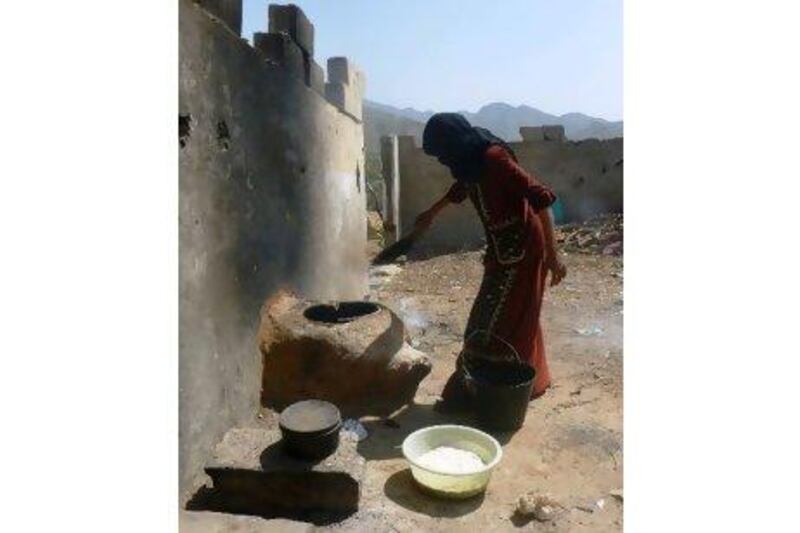DUBAI // The departure of Yemeni president Ali Abdullah Saleh to the United States last week has prompted an increase in humanitarian aid to the country, an official from a top aid agency said yesterday.
Relief workers are urging the UAE and other countries to swiftly contribute to a US$500 million (Dh1.83 billion) appeal that the United Nations launched last month.
"We met with the Dutch government last week and they are beginning to increase their contributions," said Colette Fearon, Oxfam's country director for Yemen.
"A number of European Union agencies are beginning to take the situation more seriously ... It would be fair to say we have seen some movement but we would like to see a serious increase in funding available," she said, adding there were "small signs" that aid was more forthcoming since the long-serving Yemeni head left the country.
After months of unrest, the 69-year-old president agreed in November to a GCC-brokered deal to end his 33-year-rule in exchange for immunity to prosecution. Hundreds of people died during crackdowns on the protests against his regime that began in January 2011.
A statement from Yemen said Mr Saleh was in the US for a "short-term private medical visit" for injuries suffered during an assassination attempt. He was burnt over much of his body and had shards of wood embedded in his chest by an explosion in his palace mosque as he prayed. Mr Saleh arrived in the US on Saturday for medical treatment.
Following his departure, donors began scaling up staff in the conflict-riddled nation, Ms Fearon said.
"We have noticed that there is some return to the country by donor communities and that is a very positive sign," she said.
The Oxfam representative is in Dubai to meet with foreign ministry officials and government humanitarian organisations in an effort to shore up financial support for Yemen.
"We very much hope we can build partnerships with the Gulf countries ... with Yemen being its poorest neighbour and the poorest country in the Middle East facing now a humanitarian crisis," she said. "We urge the UAE to play its part in supporting the ordinary people of Yemen, the men, women and children, in this moment of need."
Last month, UN agencies warned that malnutrition in Yemen could become as bad as it is in Somalia because nutrition figures in both countries were comparable. It is estimated that about seven million people in Yemen are in need of food. Of those, three million are already in dire need, and 60 per cent of the country's 12 million children are malnourished.
Ms Fearon said political stability in the country was necessary for development, ahead of the presidential elections scheduled for next month.
"For the people of Yemen, stability would definitely promote an environment, which would support their needs better. We would certainly urge all parties to work towards stability," she said, calling for "meaningful" inclusion of women in the decision-making process.
Oxfam is also helping improve health care and livelihoods in Yemen, campaigning against early marriage, helping to empower women, and preparing communities to face disasters.
Oxfam is launching a cash transfer programme in nine districts where it will give nearly 100,000 people $25 for the next three months to improve food security."We found that food was available but not affordable," Ms Fearon said.
The agency also plans to expand the programme to include more people, depending on funding levels. It will conduct a month-long survey in the northern region later this year to determine the work opportunities available for displaced persons. The effort is an attempt to help citizens endure the crisis and eventually become independent.
Oxfam will use community interviews and market analysis in the process.






